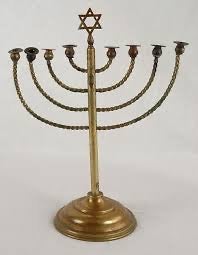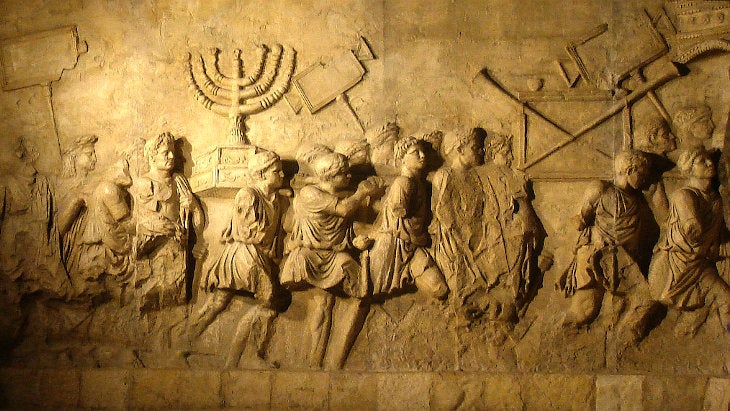By: Rabbi David Sirull
It seems to me that many people possess the mistaken assumption that Judaism teaches pacifism. On the contrary, Judaism does permit and sometimes even requires war under certain circumstances, but Judaism never celebrates war or military victories. The festival of Chanukah makes that point in a powerful way.
When other nations want to demonstrate their power, they use military weapons. When Pharaoh wanted to proclaim publicly Joseph’s new role as second in command over Egypt, he dressed him in special clothes and put him in a chariot. Today, he would ride in a tank or even fly over in a fighter jet. The chariot was the symbol of Egyptian military might. That is why the Torah emphasizes how Pharaoh’s chariot was sunk into the sea. God is more powerful than chariots.
Chanukah began as a celebration of a military victory. Judah Maccabee and his brothers fought against the Syrian-Greeks. In the end, the few defeated the many. The Syrian-Greeks were driven out of the Temple, which was cleaned and rededicated to the service of God. (The word Chanukah means dedication.) Judah and his brothers declared an eight-day celebration of their military victory.
MORE: Hanukkah filled with traditions for area Jewish families

What is important is the way we tell the story to this day. We retell the tale of one day’s worth of oil that lasted for eight days. It became a story of God’s miracle rather than a military victory. We light the Menorah in order to drive that point home, and we chant a verse from Zechariah, “Not by might and not by power, but by my spirit says the Lord” (Zechariah 4:6). A festival celebrating a military victory became a festival celebrating God’s miracles.
Judaism allows war and sometimes even obligates war. Jewish law speaks about obligatory wars and optional wars. The ideas are not as developed as in the Catholic tradition, which based on the teachings of Thomas Aquinas, has developed a theory of just war. Nevertheless, it is an interesting aspect that is shared to some extent by Christianity and Judaism. For the Jewish people, obligatory wars are for self-defense or to fight evil (e.g., in Biblical times, Amalek; in modern times, Hitler.) Again, Judaism may permit war, but it never celebrates war.
What about modern Israel, which has fought countless wars for its own survival? Yes, Israel does have military parades and flyovers of fighter jets. I suppose this is to strengthen the resolve of Israeli citizens who often feel under siege. The bottom line for us, however, is not to forget the true message of Chanukah, which was not a military victory but God’s miracle.
I look forward to our next community trek to the Holy Land in February 2023. We will learn much more about this and other fascinating topics.








